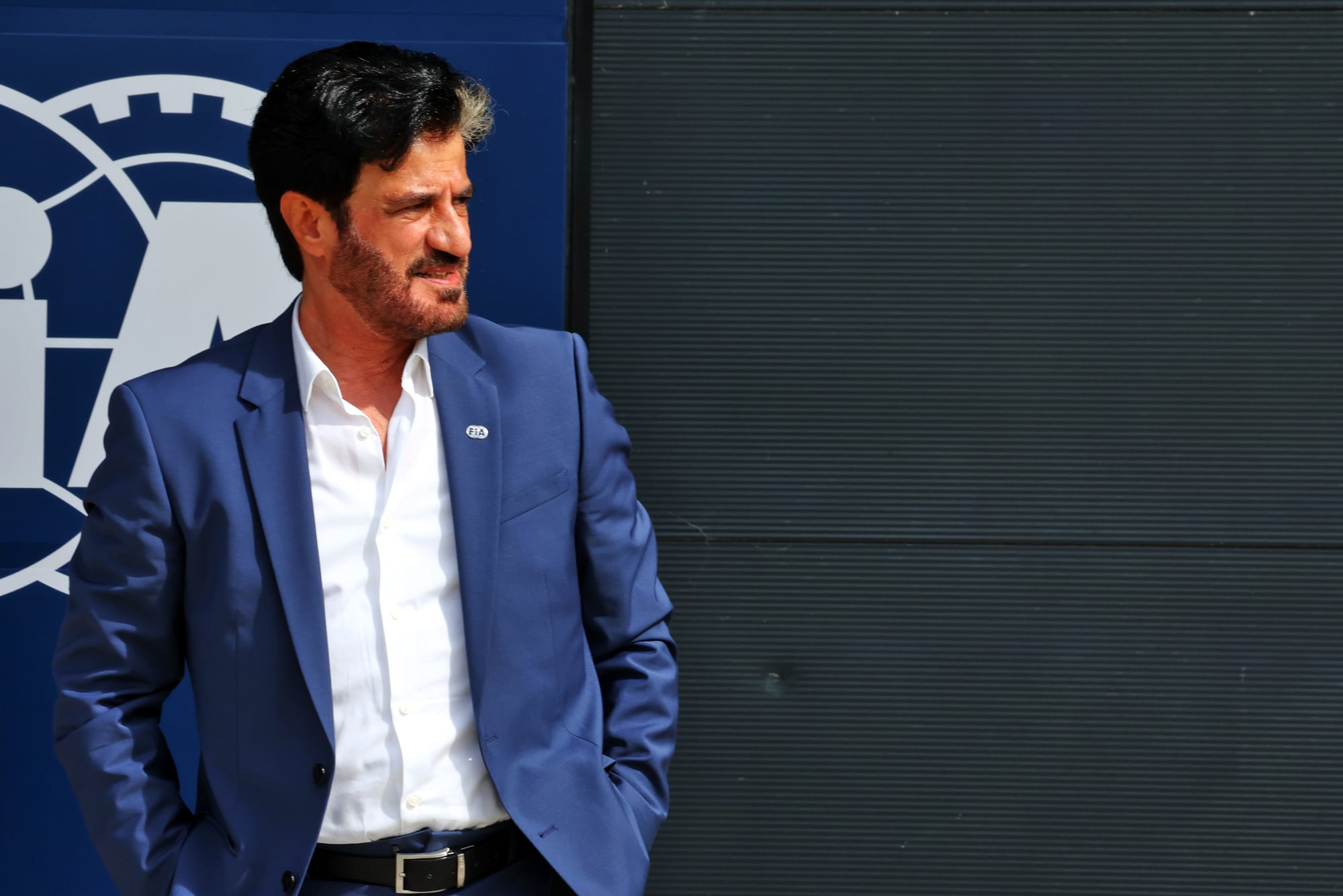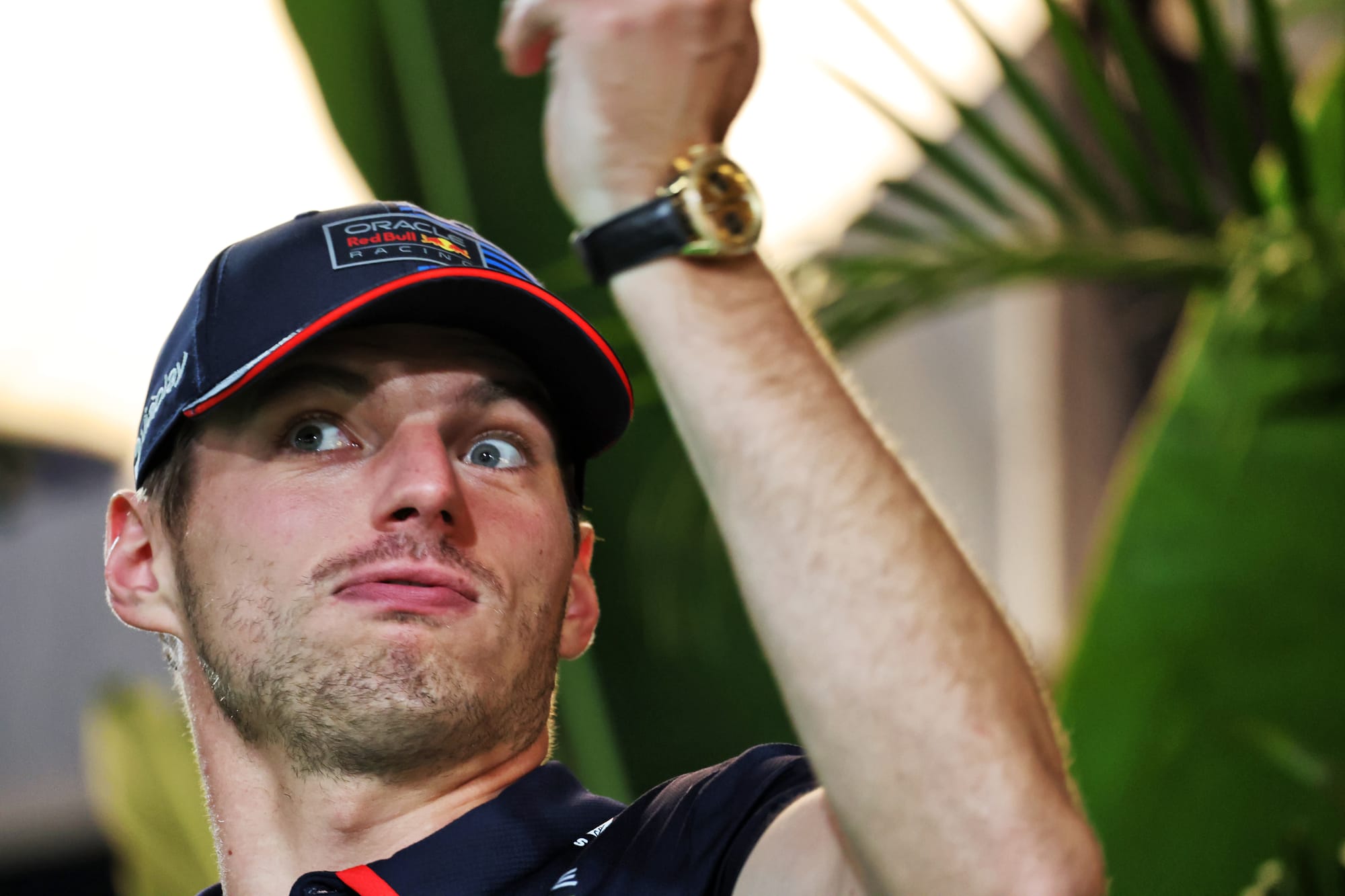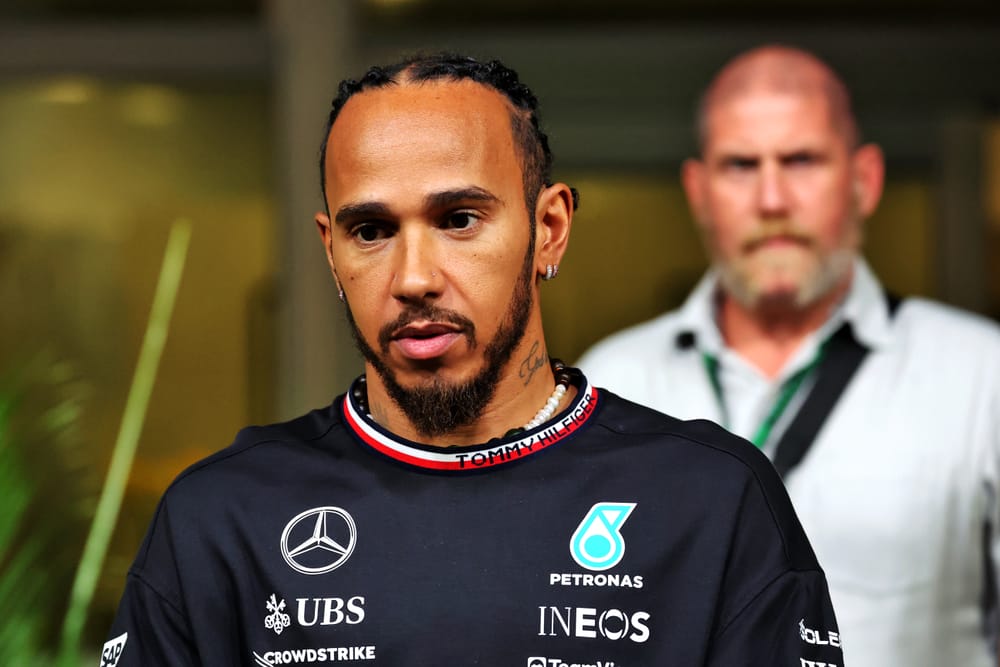Up Next

Lewis Hamilton believes there was “a racial element” to the words FIA president Mohammed Ben Sulayem used when talking about a potential clampdown on Formula 1 broadcasting radio messages that contain swearing.
In an interview with Autosport, Ben Sulayem said “we have to differentiate between our sport - motorsport - and rap music. We’re not rappers, you know. They say the F-word how many times per minute? That’s them and we are [us].”
Ben Sulayem claimed FOM (F1's commercial arm responsible for the broadcast package) will, and has already started to, broadcast fewer radio messages that contain swearing to protect younger viewers.

While Hamilton expressed support for a review of how many expletives - which are all bleep-censored as standard - are broadcast, he was unimpressed with the comparison to rappers that Ben Sulayem made.
“On one side, when I was 22, I didn’t think of it as much, and it’s more your emotions are just firing and you’re saying whatever comes to mind, but forgetting how many people are listening or kids that are listening,” Hamilton said.
“So I agree in that sense, if you listen to some of the other drivers, they’ve just not got it yet. And at some stage they will. I’m sure if you put like there’s penalties for it, people will stop it.
“I don’t know whether that’s something that’s needed, but I definitely think there is a little bit too much of it.

“And then just with what he said, I don’t like how he’s expressed it. Saying rappers is very stereotypical and if you think about it, most rappers are black. So he really pointed it towards ‘we’re not like them’.
“I think that was the wrong choice of words. There’s a racial element there.
“As I said, I agree with cleaning it up a little bit.
“But also it’s good to have some emotion. We’re not robots and for me the way I control it is because there’s over 2000 people that are working towards me, having this position and being where I am. So I have a lot of followers of all ages. But it’s not about me.
“And even though I am having this experience on track, what I do and what I say affects all of those people.
“There are people sacrificing time with their families, giving absolutely everything for me to have this privileged position and opportunity. So it’s just understanding that and putting the aggression somewhere else. That’s what I try and do.”
Norris and Verstappen don’t want F1 to lose ‘rawness’

F1 title rivals Lando Norris and Max Verstappen were united in their disapproval of a clampdown when asked about it on Thursday.
Although the question of a broader clampdown on drivers swearing was put to them rather than Ben Sulayem’s exact comments, it was clear neither is a particularly strong advocate for cutting back bad language being broadcast.
Earlier in the same press conference, Verstappen had referred to his Red Bull as being “f**ked” in Baku qualifying.
“I think it really just starts with not broadcasting it all, not giving the option for people to hear it,” Verstappen said.

“Of course there are a lot of apps where people can listen to the radios and stuff, you have to limit it or have a bit of delay that you can censor out a few things.
‘That would help a lot more than putting bans on drivers because, for example, I couldn’t even say the F-word and it’s not even that bad right? I mean the car was not working, the car is effed and excuse me for the language but come on, what are we? Five-year-olds? Six-year-olds?
“Even if a five-year-old or six-year-old is watching they will eventually swear anyway, even if the parents will not allow it, when they grow up they will walk around with their friends and they will be swearing so this is not changing anything.”
Norris echoed Verstappen and warned F1 not to lose the ‘rawness’ that the radio messages convey.
“They have the choice, they get all the radio and they press go out to public or not,” Norris said.
“You have the kids listening and younger people, from that side, you don't want it to go out. But honestly, I think it's the passion of the sport and us wanting to go out and perform at our best in a very tough sport.
“So I don't think it should be banned, if parents know they can choose to pick between a bleeped out version and a none-bleeped out version, [it’s the] same with a lot of other movies and things like that.
“But I don't think it should be banned, because I think you're listening to the rawness of drivers and their thoughts and feelings.
“I find it cool and exciting when you listen to these kind of things and it's just not just nice soft gentle language people are using.
“I'm sure there's plenty of other sports you can go watch if that's what you want to hear.”
Norris also explained swearing can be an important point of emphasis when giving feedback to his team.
“Language is also used as emphasis on certain points, it's not because you want it to be directed against someone and be aggressive towards someone,” he added.
“Sometimes it's just a general feeling that you're having. If the team knows you're meaning it as much as you're meaning it, then it has a bigger impact than just saying 'I'm not very happy'. Because they can easily take that as a minute thing.
“I think that's more on the FIA's part than ours to change.”
Ben Sulayem’s stance didn’t receive much support from Charles Leclerc either, who said “I think there are other priorities for the FIA to look at the moment” and agreed it’s something for the FIA/FOM to change in broadcast practices rather than the drivers.

Verstappen's Red Bull team-mate Sergio Perez wasn't impressed either.
"I think it’s a very funny sport. They put the microphone on your mouth. Imagine in football, if the footballers get the microphone after they get kicked in the leg,” Perez said.
“But you have to control yourself.
"If they want to control that, I think they should just delete the radio, do away with the radio and give us the privacy."




